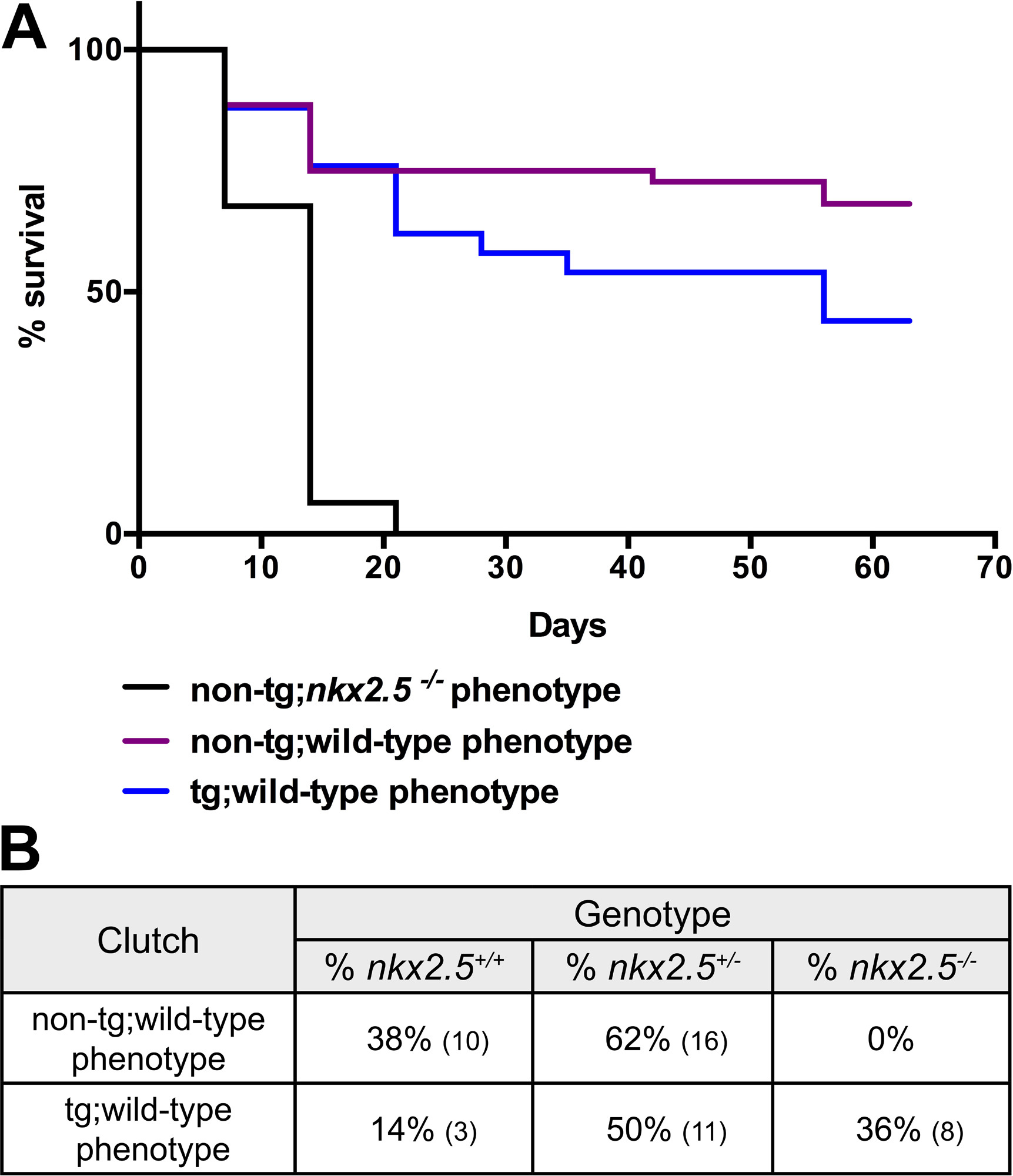Fig. 7
Re-expression of nkx2.5 prior to heart tube elongation results in healthy nkx2.5-/- adults. (A) Kaplan-Meier survival curve depicts the pattern of larval death following phenotypic assessment of non-transgenic nkx2.5-/- embryos in addition to non-transgenic and Tg(hsp70l:nkx2.5-EGFP) wild-type embryos. All animals were exposed to heat shock at 21 somites, sorted according to EGFP fluorescence, and subsequently screened morphologically at 52 hpf. While non-transgenic nkx2.5-/- embryos perish within the first 3 weeks, 65% and 44% survival is observed in the non-transgenic and transgenic wild-type clutches, respectively. (B) Genotyping results for the non-transgenic phenotypically wild-type cohort and transgenic phenotypically wild-type cohort reveal nkx2.5-/- embryos in the transgenic rescued group only. Percentages represent the proportion of embryos with a particular genotype in each phenotypic cohort; the number of embryos in each group is noted in parentheses.
Reprinted from Developmental Biology, 400(1), George, V., Colombo, S., Targoff, K.L., An early requirement for nkx2.5 Ensures first and Second heart field ventricular identity and cardiac function into adulthood, 10-22, Copyright (2015) with permission from Elsevier. Full text @ Dev. Biol.

